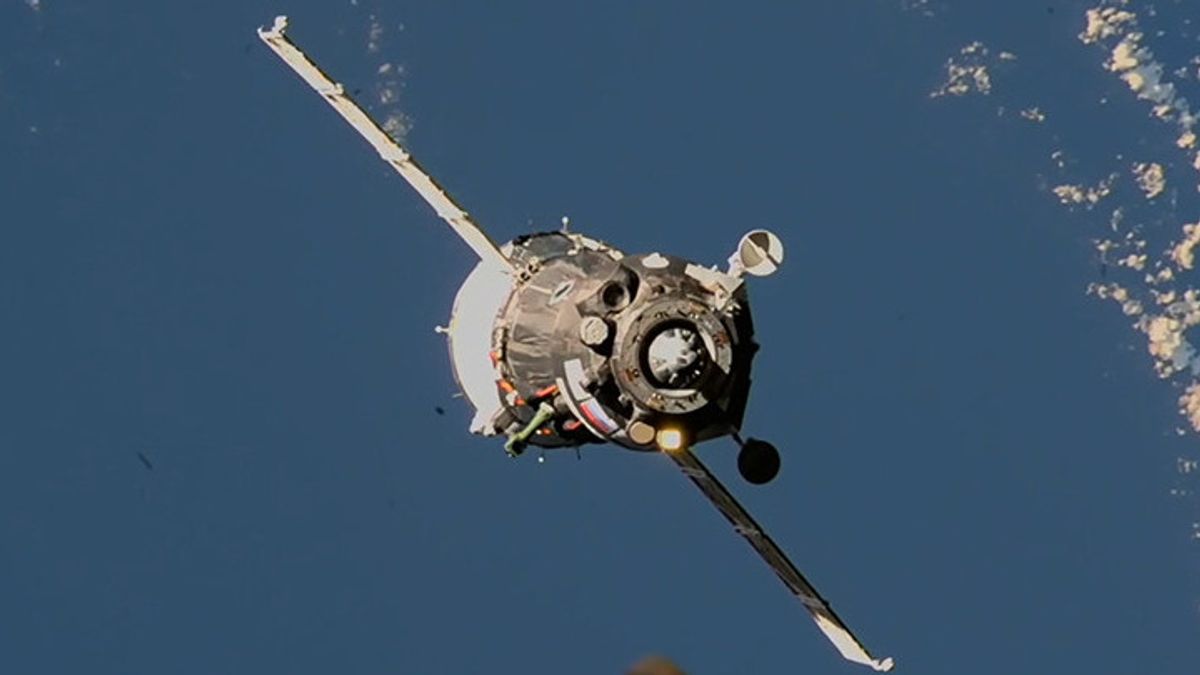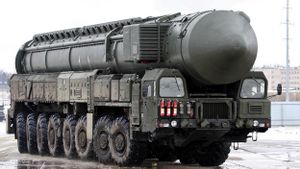JAKARTA - The spacecraft belonging to the Russian Space Agency (Roscosmos), Soyuz MS-22, which experienced a coolant leak at the International Space Station (ISS) managed to return to Earth without a crew on board.
The capsule completed a nearly two-hour return journey from the ISS, landing in the Kazakh Steppe, an area of open prairie in northern Kazakhstan on Tuesday afternoon, March 28, several hundred kilometers from the Baikonur cosmodrome, the site of the Russian space launch.
Although unmanned, Soyuz MS-22 carries cargo weighing 218 kilograms, including the results of scientific experiments carried out on the ISS and equipment that will be analyzed on Earth.
Soyuz MS-22 also carried a damaged spacesuit that experienced a power failure while traveling outside the ISS in August 2022, forcing cosmonaut (as Russian astronaut) Oleg Artemyev is called to return to the ISS.
Previously, Soyuz MS-22 was used to deliver astronauts on Expedition 68, namely cosmonauts Sergey Prokopyev, Dmitry Petelin, and astronaut Frank Rubio from NASA on September 21, 2022.
Cosmonauts Prokopyev and Petelin were preparing to perform a spacewalk from the Russian module on December 15 when inspectors noticed a leak in the Soyuz MS-22.
另请阅读:
Debris coming from the cooling loop area was seen in the live camera feed aimed at the spacecraft, and as a result, the spacewalk was aborted.
The cooling rings in the Soyuz MS-22 had lost all of their fluids, and a 0.8mm hole was found in the vehicle's service module.
As a result, the ISS program has to make several important decisions quickly while the spacecraft's damage is being analyzed. Allegedly, the leak was caused by a micrometeoroid impact, as quoted from NasaSpaceFlight, Wednesday, March 29.
The Soyuz MS-23 flight will now launch to the ISS in automatic mode to replace the leaked module, unmanned, but will later serve as a lifeboat to deliver three crew members back to Earth, as the MS-22's crew stay will be extended from this spring. until September.
For information, before Soyuz MS-23 docked on the ISS, Progress MS-21 also experienced a leak of its own coolant from the service module. It is claimed, this is due to a systemic error in the current Soyuz-based vehicle.
The leaks on both spacecraft have occurred after roughly three months of orbit, and the unmanned Progress vehicle and the manned Soyuz use the same service module architecture.
The English, Chinese, Japanese, Arabic, and French versions are automatically generated by the AI. So there may still be inaccuracies in translating, please always see Indonesian as our main language. (system supported by DigitalSiber.id)


















